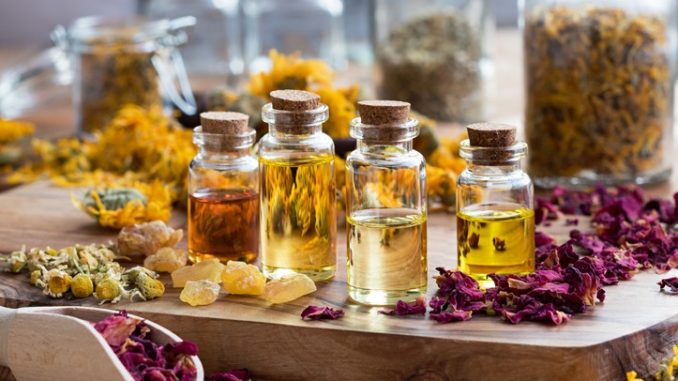
Complementary therapies can be a great way to up your self-care game – and an easy one to try at home is aromatherapy
CREDIT: This is an edited version of an article that originally appeared on Happiful
Using essential oils from plants, flowers and herbs to assist your body’s natural healing abilities, aromatherapy can energise you – or encourage you to relax – depending on which oils you use.
“Aromatherapy has such a powerful effect because it taps into our limbic system,” explains aromatherapist Louisa Pini. “This part of the brain deals with emotions, memories and stimulation, and can even influence hormonal responses. Aromatherapy oils are able to bypass the blood-brain barrier through the olfactory system; once inhaled, essential oils can stimulate memories, moods, and feelings.”
If you’re looking for support with a specific concern, you may want to visit an aromatherapist. They’ll take your medical history and create the right blends to support you, often offering relaxing aromatherapy massages. Be sure to tell them about any medications you’re taking, and speak to your GP before trying any new forms of therapy.
How to try aromatherapy at home
A simple way of using essential oils is through an oil burner or diffuser. “Add three to five drops of essential oil to some water, and enjoy the diffusion for 30–60 minutes,” Louisa advises. “Remember that essential oils are powerful, and are directly absorbed into your body and those around you – don’t diffuse them all day long.”
If you don’t have a diffuser, or oil burner, handy Louisa suggests you put a couple of drops of oil on a tissue, and simply inhale as and when you need.
Alternatively, you can use essential oils as an aromatherapy bath blend. “Use up to six drops of essential oil in 10ml of a base carrier oil – such as apricot kernel, sweet almond or jojoba, for example – and add it to warm running water. If you add essential oils directly to your bath, they will just sit on top of the water and could, potentially, irritate your skin when they come into contact with it.
“The only two essential oils that are safe to apply directly to your skin are lavender and tea tree but, even then, be cautious if you have very sensitive skin.” So it’s best to add drops to a carrier oil if you want to use it on the skin.
Scents to lift your mood
If you’re looking for something to help you feel uplifted and calm during the winter months, Louisa recommends bergamot, which has been shown to reduce anxiety in studies. “Another lovely oil that can be suitably warming with winter on its way is sweet orange oil,” she adds. “Its pleasant, sweet scent is gently uplifting, and combines well with bergamot for a powerful mood enhancer.”
If it’s relaxation you’re after, Louise suggested ylang ylang or lavender oil. “Ylang ylang oil acts on the parasympathetic nervous system and slows your heart rate and breathing which, in turn, can help to lower blood pressure. When everything is racing, and you feel panicked or anxious, pop a drop of this in your oil burner or on to a tissue and take a few deep, slow breaths.
“Lavender oil has wonderful sedative properties, and is recommended to help you sleep. It has a calming and soothing scent, and a recent study in Turkey revealed that lavender essential oil increases quality of sleep and reduced anxiety levels in patients.”
Find out more about Louisa Pini at justbenatural.co.uk
Don’t forget to follow us on Twitter, like us on Facebook, or connect with us on LinkedIn!


Be the first to comment